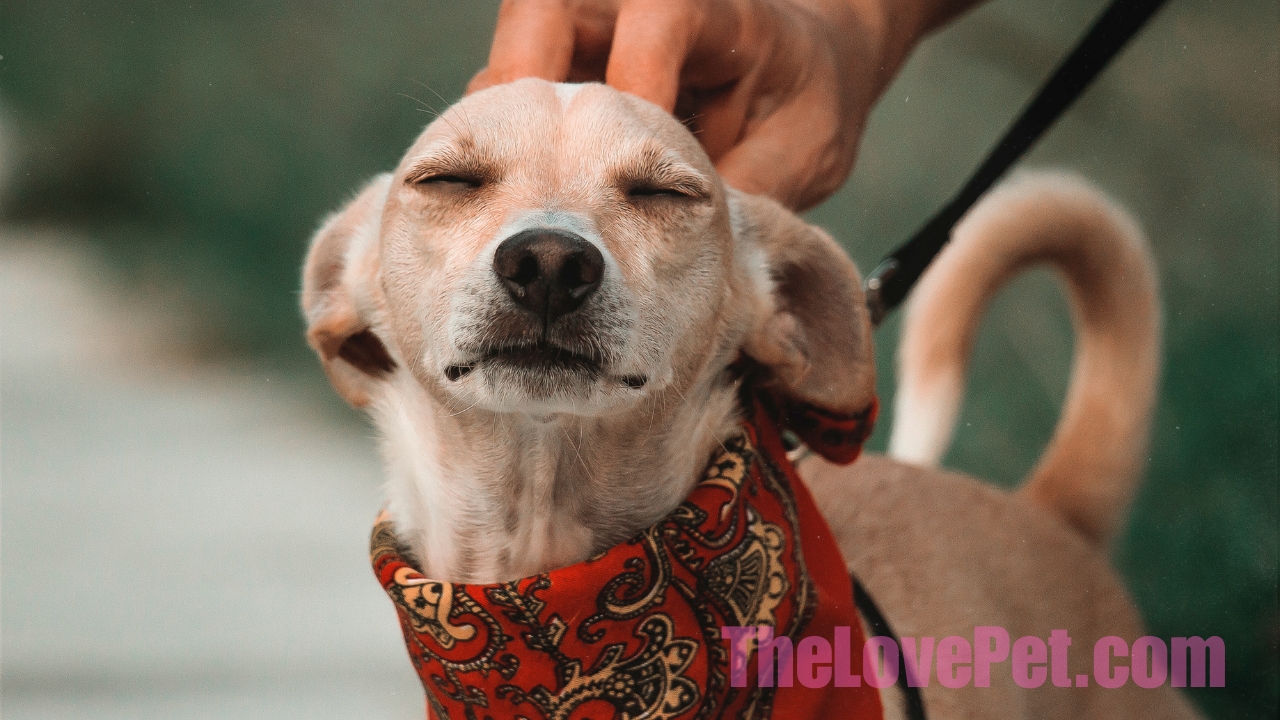Pros of Owning a Ferret
Playful and Entertaining
Ferrets are very playful and energetic. They love to play with toys, run around, and interact with their owners. Watching a ferret play and explore can provide hours of entertainment.
Relatively Small and Easy to Care For
Compared to other pets like dogs and cats, ferrets are fairly small and easy to care for. They can be litter trained and live in relatively small enclosures. Their dietary needs are also pretty simple. This makes them a good option for those with limited space.
Intelligent and Bond Closely with Owners
Ferrets are quite intelligent and can even be trained to do some simple tricks. They also form strong bonds with their owners. A ferret that is frequently handled often becomes very attached to its human.
Cons of Owning a Ferret
Require Significant Time Out of Cage
Ferrets need a good amount of time outside of their cage every day to run around and get exercise. Owners need to plan to let their ferret out for several hours per day.
Can Bite or Nip
Ferrets have a natural tendency to nip or bite, especially when playing. Their skin is also very sensitive so they may bite if hurt or startled. This can make them less ideal pets for small children.
Prone to Certain Health Problems
Ferrets are prone to certain health issues like insulinoma and adrenal disease. Responsible ownership means being prepared to provide vet care as needed.
Have a Strong Odor
Ferret musk can produce a very strong odor. Their cage needs regular cleaning to keep smell down. Some find the natural scent unpleasant.
Conclusion
Overall, ferrets can make fun, lively, and loving pets for the right owners. Their playful nature and bonded relationships with humans are definite benefits. However, they do require a lot of time and care. Their natural behaviors like biting and scent can also be drawbacks for some people. Doing thorough research is recommended before getting a ferret.
More on the Pros of Owning a Ferret
They Stay Playful as They Age
One great thing about ferrets is they tend to maintain their playful personalities even as senior pets. An older ferret likely won’t be quite as energetic, but will still often be up for a good play session. Their enduring playfulness makes them entertaining companions.
Litter Box Training is Relatively Easy
While ferrets need time out of their cage, you can contain their messes by litter training them. Ferrets can be trained to use a litter box with a little time and persistence from owners. This makes keeping their living area clean much more manageable.
They Sleep Heavily
Ferrets tend to sleep very soundly, up to 18 hours a day. This means they likely won’t disturb you while you’re sleeping. It also makes it easy to adjust a ferret’s schedule around your own activity.
More on the Cons of Owning a Ferret
Need Their Bedding Changed Frequently
To keep odor under control, you have to stay on top of changing out soiled bedding daily. Their bedding can get smelly very quickly otherwise. This daily chore can get tiresome for some owners.
Vulnerable to Heat-Related Issues
Ferrets are very susceptible to heat stroke. Temperatures over 75°F can be dangerous for them. You need to take precautions to keep a ferret cool in summer weather.
Can be Destructive
Ferrets love to dig and burrow. If left unchecked, they may dig at and damage carpets, upholstery or foam padding in couches and chairs. Ferret-proofing an area is a must.
#FAQ #Update #AdditionalContent
1. What are some common issues with keeping ferrets as pets?
2. Why do ferrets have a strong smell, and how can it be managed?
3. How often do ferrets poop, and is it possible to litter-train them?
4. Do ferrets tend to bite, and can they be trained not to bite?
5. Is it advisable to walk ferrets, and why should they be kept in pairs or more?
Ferrets, Are They Good Pets? Consider These 7 Factors
Keeping ferrets as pets can be challenging due to several reasons. Here are some key issues to consider:
1. Odor
Ferrets emit a strong, musky scent that many people find unpleasant. Although some animal enthusiasts tolerate it, it can be overpowering. Males generally smell stronger than females, while neutered ferrets have a milder odor. Failing to thoroughly clean your ferret an hour before traveling can lead to uncomfortable situations in public.
2. Frequent Bowel Movements
Ferrets defecate frequently, at least 10 times a day, with a consistency resembling brown toothpaste. Due to their short digestive tracts, controlling their bowel movements can be challenging. Litter-training isn’t always successful, and accidents outside the litter tray are common. Regular cleaning is essential to maintain cleanliness, including applying a small amount of feces to the tray to avoid confusion.
3. Aggressive Behavior
Ferrets may exhibit aggressive behavior, particularly biting. It can be challenging to train them not to bite once they develop this habit. Ferrets might interpret your reaction as a game, even if their initial intention was playful. Biting is a significant concern, especially when considering ferrets as pets for children.
4. Limited Walking Ability
While you can take ferrets for walks, don’t expect them to walk beside you like dogs. Most ferrets don’t follow a straight path during walks, making it difficult to control them, especially near roads. Managing more than two ferrets during walks can be particularly challenging.
5. Social Animals
Ferrets are social creatures and should be kept in pairs or groups. While owning more than three might be overwhelming, it’s crucial to provide them companionship to ensure their well-being.
6. Need for Freedom and Playtime
Keeping ferrets caged for extended periods is cruel, similar to confining dogs. Ferrets are highly intelligent animals and require ample playtime. They are as intelligent as dogs or cats and possess abundant energy that necessitates daily playtime. Failure to provide this can lead to destructive behavior, including damaging litter trays, food, water, and even their cages.
7. Costly Vet Bills
Ferret veterinary care can be expensive, and finding affordable insurance is often challenging. Ferrets are susceptible to genetic diseases, especially cancer, requiring costly treatments. Before considering a ferret as a pet, it’s essential to have a substantial financial cushion to cover potential vet bills.
If you’ve read through these challenges and remain undeterred, a ferret might be the right pet for you. However, if these issues seem overwhelming, you should explore other pet options that better align with your lifestyle and preferences.
This article provides insights into the challenges of keeping ferrets as pets. It does not substitute for professional veterinary advice, diagnosis, or treatment. Always seek guidance from a qualified veterinarian for your pet’s specific needs.
#FAQ #Update #AdditionalContent
1. What are some reasons why people choose ferrets as pets?
2. How can you entertain and play with ferrets?
3. Do ferrets get along well with other pets?
4. What are some characteristics of ferrets that make them suitable as pets?
5. What are the basic care requirements for keeping a ferret as a pet?
Ferrets, although not the perfect pet for everyone, have numerous qualities that make them exceptional companions. Explore the top ten reasons why people choose ferrets as pets.
1. Super Cute Companions
Ferrets possess an irresistible charm comparable to kittens. Their slender bodies and fluffy faces make them wonderful companions. Additionally, dressing them up can be just as delightful as with cats or dogs, making them perfect for sharing on your social media accounts.
2. Endless Entertainment
Ferrets are brimming with energy and can provide hours of entertainment, whether in their cage or roaming free. Their agility and playful antics, especially when paired with another ferret, guarantee constant surprises and laughter.
3. Playful Nature
These creatures have a playful spirit, willing to engage with anything they find interesting. You can easily craft toys for them if you prefer not to purchase them. Boxes and bags, similar to cats, can provide hours of amusement.
4. Curiosity Unleashed
Ferrets are naturally curious, adding to their playful demeanor. They eagerly explore anything new, making it essential to introduce novelties in a comfortable environment to prevent anxiety.
5. Social and Friendly
Well-trained ferrets love meeting new people and are inherently sociable. Encouraging them to have friends, whether other ferrets or other pets, can lead to even more fun and entertainment.
6. Compatibility with Other Pets
Ferrets raised around other animals readily accept them as part of their family. The sight of a kitten or puppy playing with a ferret is a heartwarming experience. However, caution should be exercised when larger pets are involved, as some may have hunting instincts that could be triggered by ferrets. Always ensure their safety, especially around smaller pets like rabbits, hamsters, reptiles, or pet birds, as ferrets are natural hunters.
7. Intelligence on Par with Cats and Dogs
Similar to cats and dogs, ferrets exhibit intelligence and a love for playing games. Creating mazes and obstacle courses for them can be an engaging way to watch them explore. Moreover, ferrets can be trained to perform tricks just like dogs.
8. Ideal Size for Limited Spaces
Ferrets are smaller than most cats and dogs, making them suitable for smaller living spaces. While they require a cage for living, it’s safe to let them out when you’re present, thanks to their compact size.
9. Noise Level: A Quiet Companion
Ferrets are generally quiet animals, in stark contrast to dogs that bark. The soft noises they make, often referred to as ‘Dooking,’ only add to their charm.
10. Easy Care Requirements
Caring for one or more ferrets is relatively straightforward. Daily tasks include cleaning food and water bowls, a standard responsibility for all pet owners. Most ferrets are litter box trained, necessitating daily litter pan changes. Keep in mind that due to their small size, ferrets can easily be injured, so vigilance is crucial.
Feeding
Ferrets have modest dietary needs due to their small size. Ferret food is readily available at pet stores and is reasonably priced. They typically require 2-4 small meals per day. Employing a timed feeder or a small bowl is a convenient feeding method. If you need to leave for work, leaving them some snacks is a suitable solution. Opting for a high-quality ferret diet over a cat food-based one is recommended.
Cost
Compared to dogs, the cost of owning a ferret is relatively low, with an annual expenditure ranging from $250 to $600. This includes essential expenses like food and bedding, as well as basic veterinary care. Some states may require rabies vaccinations for ferrets, and monthly heartworm preventatives are essential. Keep in mind that additional spending on toys and treats is not included in this estimate.
Training
Ferrets can be trained to perform tricks and use a litter box, with treats serving as valuable incentives. Consistency is key during the 1-2 week training process to avoid confusion.
Exercise
Ferrets are naturally inclined to exercise, often engaging in self-directed play. For those interested, harnesses and leashes are available for walks, which may lead to curious onlookers and inquiries.
#FAQ #Update #AdditionalContent
1. What are some common health issues that ferrets may face, according to the text?
2. How should potential ferret owners prepare for their needs and quirks?
3. What are some tips for ferret-proofing your home, as mentioned in the text?
4. What is the recommended diet for ferrets, and what foods should be avoided?
5. How can owners address nipping behavior in ferrets, according to the text?
Every year, thousands of ferrets are surrendered to animal shelters and ferret rescue organizations. These unique animals are high maintenance pets, so it’s essential to understand their needs and quirks before welcoming one into your home. Here are some key considerations for potential ferret owners:
Health and Care
It’s crucial to consult with a veterinarian who specializes in ferrets to learn about their health, dietary needs, common health problems, and spaying/neutering. Ferrets need annual vaccinations against canine distemper virus and rabies, and they are susceptible to heartworm and the human flu virus.
Diet
Ferrets are strict carnivores and require a diet rich in animal protein and fat. Commercial ferret foods or high-quality dry cat foods are suitable options. Avoid foods high in fiber and vegetable protein, as well as bones or foods containing bones, as these can harm their digestive tract.
Housing
Ferrets benefit from living in large, multi-leveled cages with ramps. The minimum cage size for one or two ferrets is 24x24x18 inches. Ensure the cage is constructed from easy-to-clean materials and has secure latches. Provide bedding materials and sleeping products like tubes, tents, and hammocks.
Ferret-Proofing Your Home
Ferrets are curious and can squeeze into narrow spaces, so seal openings with wire mesh or wood. Remove items with rubber or foam parts, as ingesting these can be dangerous. Prevent access to potentially toxic substances and check appliances before use.
Litter Training
Ferrets can be litter-trained, so place a low-sided pan in their cage corner and another in their exercise area. Use pelleted litter and clean it daily to reduce odor.
Behavior
Ferrets love toys, but avoid latex rubber or foam toys that can be ingested. Provide tunnel-type toys to stimulate their burrowing instincts. Address nipping behavior by calmly detaching the ferret, saying “no” firmly, and diverting their attention.
Remember that ferrets have a musky odor, and they can be banned as pets in some areas. Additionally, ferrets can bite, so close parental supervision is necessary, especially with young children.
Conclusion
Ferret ownership can be rewarding, but it requires commitment and understanding of their unique needs. Consulting with a veterinarian and following proper care guidelines is essential for providing a healthy and happy life for these comical, high-energy mammals.









